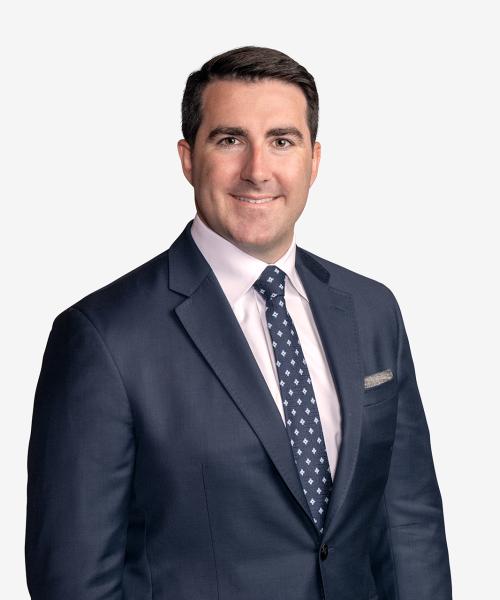Friday Enforcement Wrap: DOJ Issues New Compliance Guidance
DOJ News
DOJ Issues New Compliance Guidance
The U.S. Department of Justice (DOJ) Criminal Division released updated and expanded guidance (the April 2019 Guidance) to aid Federal prosecutors in the evaluation of corporate compliance programs, the presence and effectiveness of which can determine specific penalties imposed upon entities facing investigation or prosecution for fraud or misconduct under laws including the False Claims Act (FCA) and the federal Anti-Kickback Statute (AKS). The April 2019 Guidance substantially expands upon and reworks a prior guidance document issued by the DOJ Criminal Division in February 2017; that document “provides some important topics and sample questions that the Fraud Section has frequently found relevant in evaluating a corporate compliance program,” while the April 2019 Guidance specifically states that the “document is meant to assist prosecutors in making informed decisions” regarding the effectiveness of a corporate compliance program “for purposes of determining the appropriate (1) form of any resolution or prosecution; (2) monetary penalty, if any; and (3) compliance obligations contained in any corporate criminal resolution.”
The April 2019 Guidance sets forth three “fundamental questions” that prosecutors should ask with respect to corporate compliance programs, and then presents even further detailed sub-topics and sub-questions for evaluation related to each fundamental question. For example, with respect to the fundamental question of “Is the corporation’s compliance program well designed?” the April 2019 Guidance sets forth six separate sub-topics (risk assessment; policies and procedures; training and communications; confidential reporting structure and investigation process; third-party management; and mergers and acquisitions) containing further discussion and targeted inquiries.
The April 2019 Guidance explicitly sets forth the DOJ’s position that corporate compliance programs must be more than “paper programs” (i.e., should not be those that exist only on paper without real-world application to the company’s daily activities), that executives and middle management share responsibility for modeling appropriate behavior and fostering a culture of compliance, and that effective compliance programs must be frequently updated and revised to take into account new compliance threats and a changing regulatory landscape.
All companies operating in highly-regulated industries, and particularly those operating in the health care and life sciences sectors, should take the time to review the new April 2019 Guidance and reflect upon the current state of their compliance programs.
The DOJ press release can be found here
The April 2019 Guidance can be found here.
DOJ Settlement News
Two Pharmaceutical Manufacturers Settle DOJ Investigation into Co-Pay Assistance Practices for $125 Million
The DOJ announced on April 25, 2019 that two more pharmaceutical manufacturers, Astellas Pharma US, Inc. (Astellas) and Amgen Inc. (Amgen), have reached a deal with the government to resolve allegations that the companies violated the FCA when they each allegedly used independent copayment charities to subsidize the copays of Medicare patients for their own drugs, while simultaneously taking large price increases for their products. Astellas and Amgen also each entered into a five-year corporate integrity agreement (CIA) with the Health and Human Services (HHS) Office of Inspector General (OIG) and must adopt specific compliance measures with respect to interactions with independent copayment charities.
Astellas, the maker of the drug Xtandi, agreed to pay $100 Million to resolve allegations that they directed two independent copayment charities to operate financial assistance funds to provide copayment assistance for their product only, to the exclusion of needy patients taking similar but competing drugs. The government also alleged that Astellas promoted the existence of the copayment assistance funds “as an advantage for Xtandi over competing drugs in an effort to persuade medical providers to prescribe Xtandi.”
Amgen, who resolved its allegations of misconduct for $24.75 Million, instructed an independent copayment charity to create a financial assistance fund to cover only the copayments of patients taking Sensipar, an Amgen product. The DOJ press release stated that “Amgen allegedly made payments to the fund even though the cost of these payments exceeded the cost to Amgen of providing free Sensipar to financially needy patients.” In addition, Amgen’s predecessor, Onyx Pharmaceuticals Inc. (Onyx) allegedly obtained data from an independent charity to which it donated for the purpose of calculating donation amounts “understood to be sufficient only to cover the co-pays of Kyprolis [the Onyx product] patients.”
These settlements represent the latest in the ongoing investigation being run by the U.S. Attorney’s Office for the District of Massachusetts, which has resulted in collection of $840 Million by the DOJ related to allegations of fraudulent behavior on the part of drug manufacturers with respect to financial patient assistance.
Read the DOJ press release here.
DOJ Reaches Settlement of $17.5 Million with Pharmaceutical Manufacturer to Resolve FCA Case
The allegations of two whistleblower relators led to the settlement of a FCA action pending against drug manufacturer US WorldMeds LLC (USWM) to the tune of $17.5 Million. The relators alleged that USWM violated the FCA by giving illegal remuneration in the form of kickbacks to two physicians with the intent to influence treatment decisions and increase utilization of USWM’s products, Apokyn and Myobloc. The kickbacks allegedly took the form of “excessive consulting fees,” “meals and entertainment, including a trip to the Kentucky Derby” for the physician and her spouse, “events at expensive restaurants in New York City,” and “a $550 bottle of vodka,” among other items.
The improper conduct also allegedly involved USWM’s use of a third-party foundation to serve as a conduit through which USWM could illegally funnel co-payment assistance to Medicare and TRICARE beneficiaries. The settlement agreement reached with the government states that USWM was the sole donor – and knew it was the sole donor – to the foundation’s Parkinson’s disease fund and that it also knew the fund “disbursed virtually all of its payments to benefit Medicare patients who were using Apokyn for their Parkinson’s Disease symptoms.” Of significance, USWM allegedly “received reports from its reimbursement support program that tracked Medicare Apokyn patients receiving payments from the Fund and knew that Medicare Apokyn patients would not have filled their scripts without the copayment assistance given the high cost of Apokyn.” In addition to the financial settlement, USWM has entered into a CIA with the HHS OIG.
The cases are captioned United States ex rel. Bennett v.US WorldMeds, LLC, The Assistance Fund, Inc. et al., No. 3:13-CV-363 (D. Conn.) and United States ex rel. Chinnapongse v.US WorldMeds, LLC, No. 3:16-cv-0080 (D. Conn.).
Read the DOJ press release here.
Former Hospital CEO Settles to Resolve FCA Allegations
The former chief executive officer (CEO) of hospital chain Health Management Associates LLC (HMA) will resolve allegations that he caused HMA to knowingly submit false claims to government health care programs through a settlement of $3.46 Million. The settlement concerns allegations of fraud raised by two separate whistleblowers.
Former HMA CEO Gary Newsome allegedly pressured HMA emergency department doctors to “increase patient admissions by recommending admission without regard to medical necessity” resulting in higher reimbursement rates to the hospital for inpatient admissions, as opposed to less expensive outpatient or observation treatment settings. It was also alleged that Newsome caused HMA to pay remuneration to EmCare, a physician staffing company, which included improper financial bonuses and incentives, and conditioned EmCare’s contractual relationship with HMA on the volume of inpatient admissions that EmCare doctors generated from the emergency department. The case was brought initially by two qui tam relators who will receive $725,000 from the settlement.
The case is United States ex rel. Meyer & Cowling v. HMA, Inc., 1:14-cv-00586-RBW (D.D.C).
Contacts
- Related Industries
- Related Practices
-
Read Time
9Minutes





